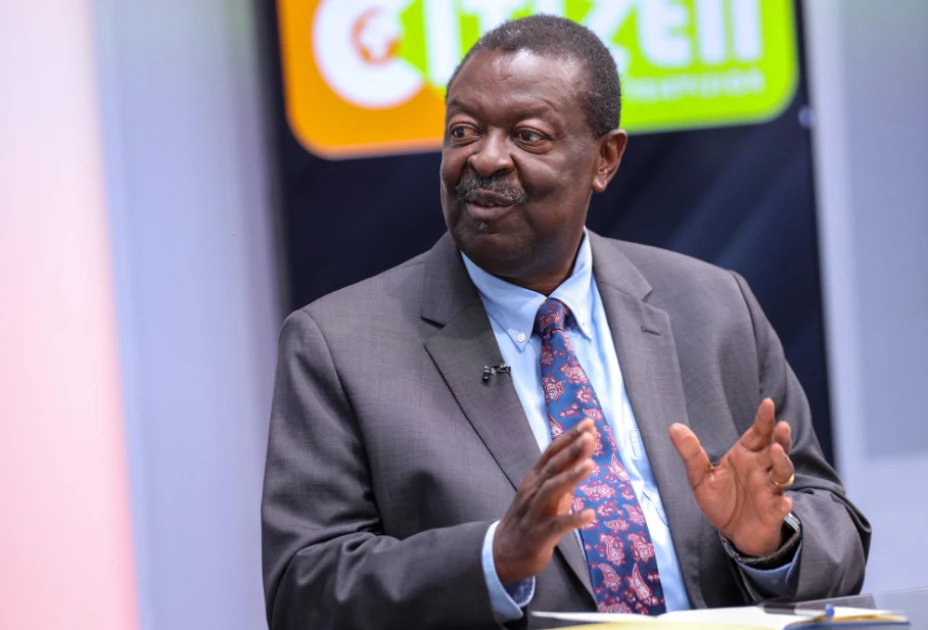Mudavadi warns AI is elevating terrorism threats in Kenya

Prime Cabinet Secretary and Foreign Affairs CS Musalia Mudavadi speaks in an interview on Citizen TV on May 15, 2025. PHOTO | JASE MWANGI | CITIZEN DIGITAL

Audio By Vocalize
Speaking during a meeting with Natalia Gherman, Executive Director of the United Nations Counter-Terrorism Executive Directorate (CTED), on the sidelines of the UN General Assembly in New York, Dr. Mudavadi said terrorist groups are increasingly exploring AI to advance their activities.
“AI tools could be used to generate propaganda, manipulate information through deepfakes, automate recruitment messaging, or support cyber-enabled crimes such as phishing and financial fraud,” he noted.
He stressed that Kenya continues to face persistent security threats, particularly from Al-Shabaab, which exploits instability in Somalia and porous borders to launch cross-border attacks. These include improvised explosive devices (IEDs), targeted killings, and ambushes on civilians and security personnel.
Dr. Mudavadi highlighted that extremist groups are using online platforms to recruit and radicalize youth, a trend worsened by the return and movement of foreign terrorist fighters across the Horn of Africa.
At the national level, he said Kenya has adopted a multi-dimensional approach to counter terrorism. This includes the Prevention of Terrorism Act, specialized units such as the Anti-Terrorism Police Unit, and intelligence-led border surveillance operations. He added that Kenya is implementing the National Strategy to Counter Violent Extremism (NSCVE), which empowers county forums to lead prevention, deradicalization, and rehabilitation initiatives.
Regionally, Kenya remains active in security mechanisms under IGAD, the African Union, and the Djibouti Code of Conduct. Investments have also been made in counter-IED capacity, cybersecurity, and intelligence-sharing with international partners.
Dr. Mudavadi commended CTED’s role in supporting member states through country assessments, technical assistance, and mobilizing expertise for counter-IED programmes. He emphasized the need for greater CTED engagement in technology transfer, sustainable financing, and the inclusion of African perspectives in shaping global counter-terrorism priorities.
Ms. Gherman said CTED last conducted an assessment in Kenya in 2016 and expressed readiness to undertake a new review this year, subject to Kenya’s approval.
“It is about time to conduct an assessment for Kenya. ICT is a useful tool in counter-terrorism, but in the hands of terrorists, it can be weaponized,” she said.
Dr. Mudavadi welcomed the proposal, affirming Kenya’s willingness to support the exercise. “We have been victims and continue to face threats. The technology space is evolving rapidly, and our legal frameworks need continuous review. Even in education, there is a need to introduce basic awareness from an early stage,” he said.
He reaffirmed Kenya’s commitment to deepening cooperation with CTED and international partners to strengthen resilience against terrorism and violent extremism.


Leave a Comment